It is time to acknowledge that a great injustice has been done in this blog. While the name of the blog is “Two Cats Backpack” referring to the never-ending struggle between staying home and spending time with our two cats or packing the backpack and heading out to explore the world, all our blog entries have been about the “backpack” and pretty much none about Milo and Lucky. And while I have a million and one cat stories that none of my friends want to hear anymore, Victor still refuses to turn this blog into an endless scroll of cute cat pictures and fascinating (at least to me) cat anecdotes. So, in an attempt to correct all wrongs, while side-stepping restrictions, this post is all about cats… that we met while traveling to Türkiye.
There is usually an occasional cat, no matter where we go. There are large Norwegian Forest cats with little bells on their collars lounging around on door stoops in Bergen, little scrawny multi-colored cats running around all South American cities, very vocal yet skittish cats hanging around every touristy restaurant in Thailand and Vietnam, and aloof Persians and Siamese suntanning on windowsills of European cities. But no country does cats quite as extravagantly, over-the-top, and in-your-face as Türkiye. There are cats EVERYWHERE. And not the skittish scrawny strays of countries that don’t have their feral cat population under control, but the arrogant, well-fed, highly admired, strutting around like they don’t have the care in the world, absolute bosses of every bench, parked moped seat, and sun-warmed car hood - Turkish street cats. If you find the idea of a street cat with a healthy coat and even a healthier dose of self-respect unusual, then you haven’t been to Türkiye.
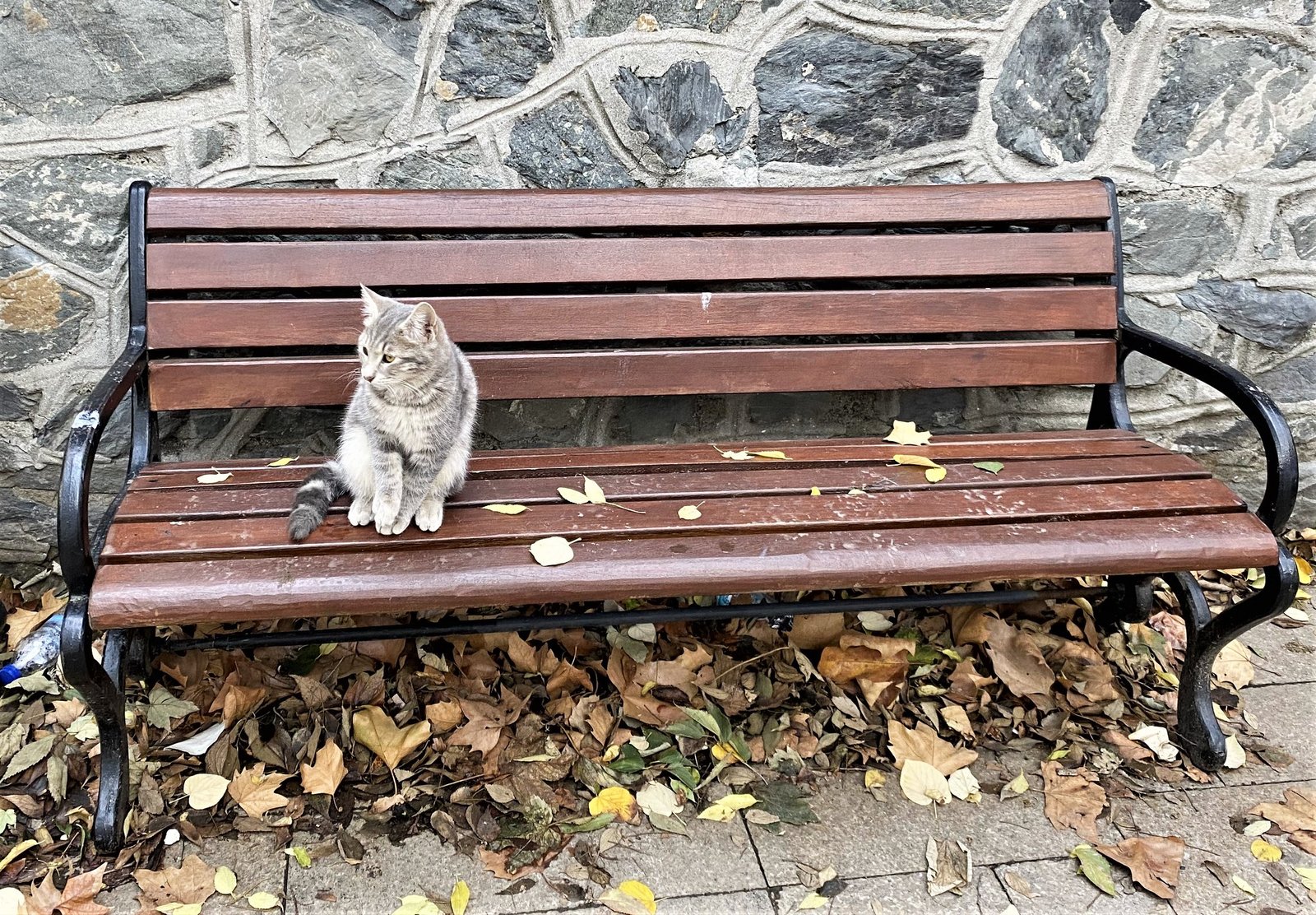
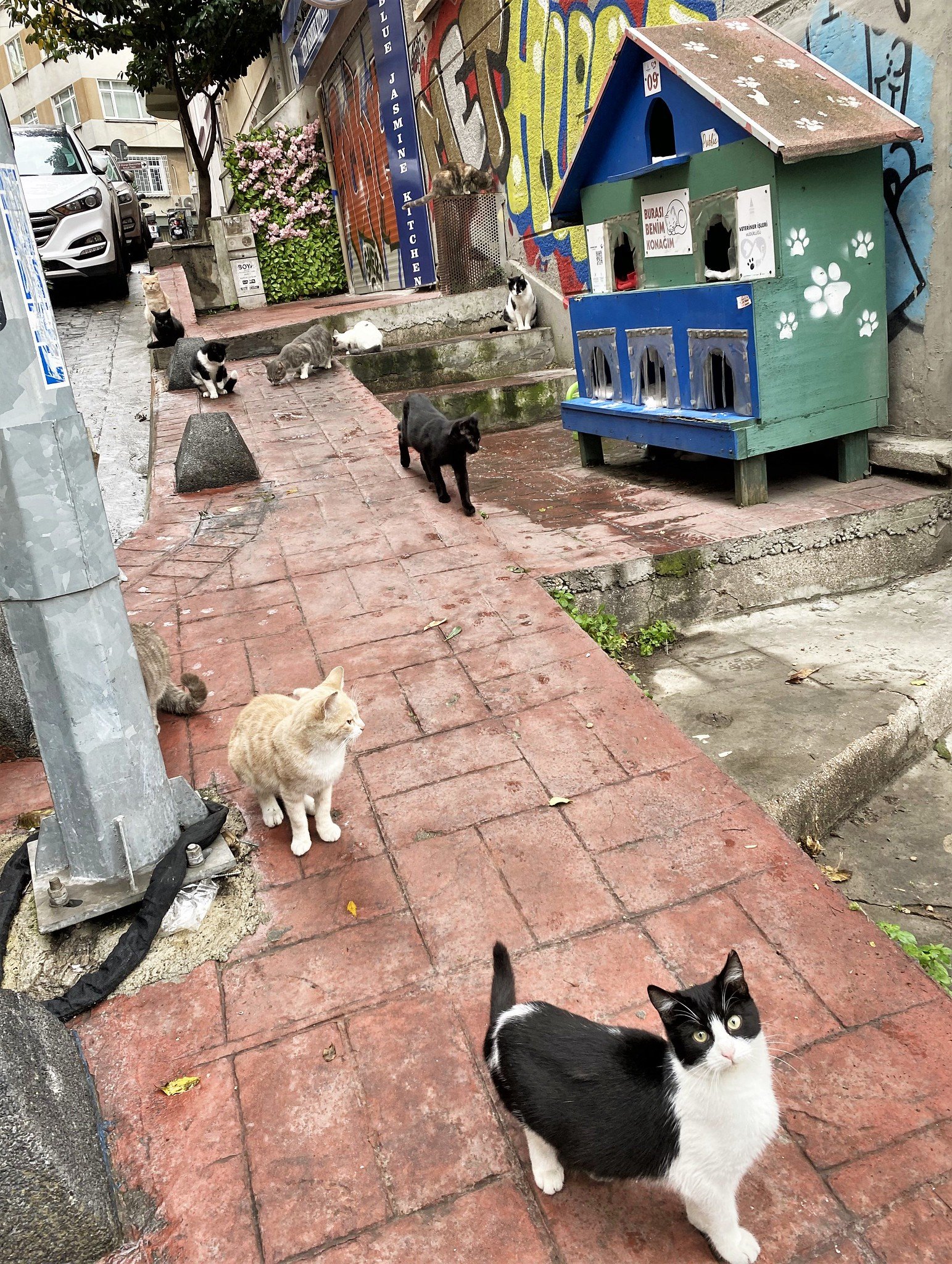
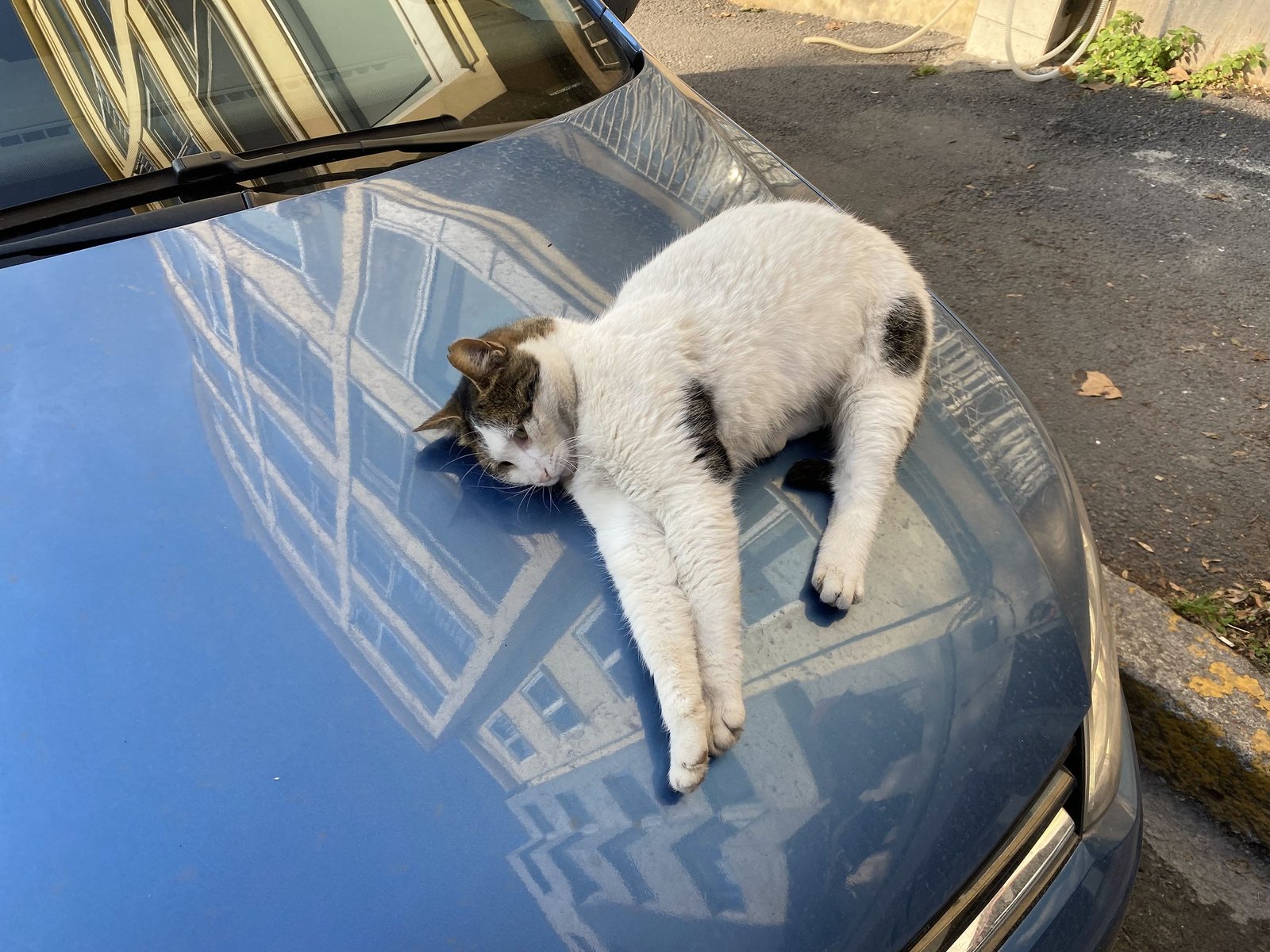
I first learned of this phenomenon when Victor traveled to meet up with his parents in Istanbul in 2022. Every morning began with him sending me dozens of cat pictures from around their Airbnb – fat ginger cats, cute white kittens, playful black cats, squinting tabbies - a giant colony of cats that seemed to have taken over the entire neighborhood. As the day went on, sometimes I would receive an occasional picture of an architectural marvel, a snap of a delicious meal, or a smiling family photo, but usually not. But there wasn’t a single morning that I didn’t get an entire reel of cute cat photos. My Messages app was starting to look like an Instagram feed.
When Victor came back, he told us (Milo, Lucky, and I were intently listening to all his stories) that Turkish people absolutely love cats and actively participate in taking care of street cats by setting up feeding stations, providing fresh water, and even building cat houses. Once, he saw a young Turkish man wearing a helmet walk up to his moped, only to find a sleeping cat curled up on the moped seat. So, he did the only reasonable thing a man can do in this situation – sigh, take off his helmet, and walk away. Apparently, this isn’t just random appreciation of cats’ cuteness or their practical ability to keep rodent populations in check, but strangely enough, part of religion. Islam, a predominant religion in Türkiye, has a very positive view of cats because the Prophet Muhammad had a deep fondness for cats. Also, cleanliness is highly appreciated in Islam, and cats are seen as clean animals and are welcomed into homes and mosques. There is even a well-known Islamic saying, “If you kill a cat, you need to build a mosque to be forgiven by God.” The year before Victor was in Türkiye, the country even passed a law that redefined animals as living beings and punished their mistreatment with jail time.
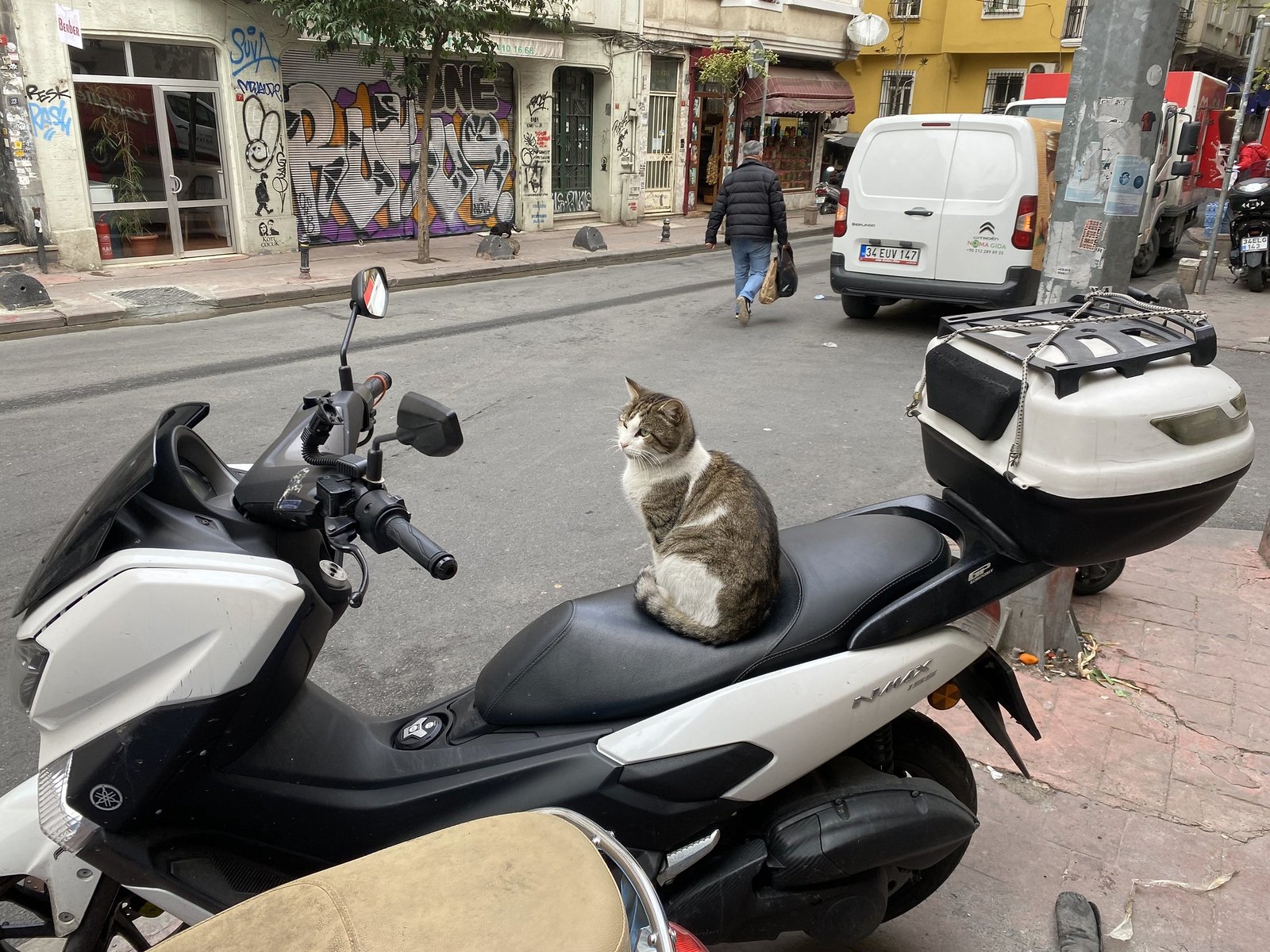

Last year, Victor and I both traveled to southern Turkey and spent a week driving from Izmir to Antalya, where we met up with his parents. On our very first day in Izmir, we woke up early to stroll the streets in search of breakfast, and hopefully Turkish coffee. The moment we settled in on a cute outdoor café bench decorated with Turkish rugs, a small tabby cat jumped directly into my lap. No rubbing against my leg as a greeting, no squinting at me from under the table, no tentative introductory meowing from a few steps away… No, this cat just landed straight in my lap, flipped over, exposing his soft belly, and started to loudly purr and demand pets.
I am not naïve, not anymore. Once, I fell in love with a dog in Tbilisi, and it turned out to be a bit of a “gold-digging” situation, so I was very wary of this strange cat love-bombing me.
“He must be hungry,” I told Victor, pinched a bit of my breakfast, and offered it to the purring cat. He ignored the food and continued vigorously petting himself against my open hand.
Victor pointed to the café stoop, littered in abundance with dishes of cat food and water. All this cat wanted from me was some companionship, and he got loads of it while we ate our breakfast.
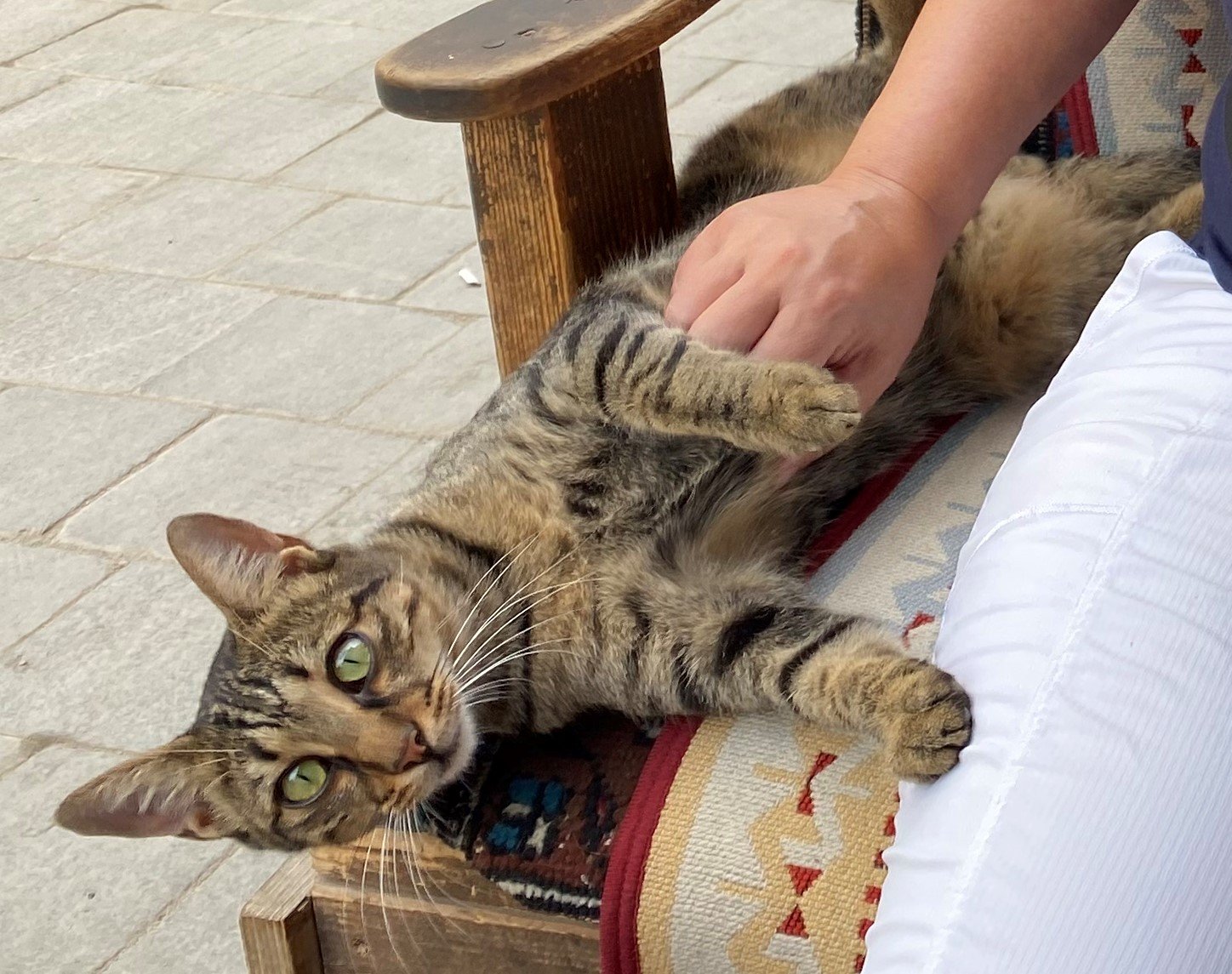
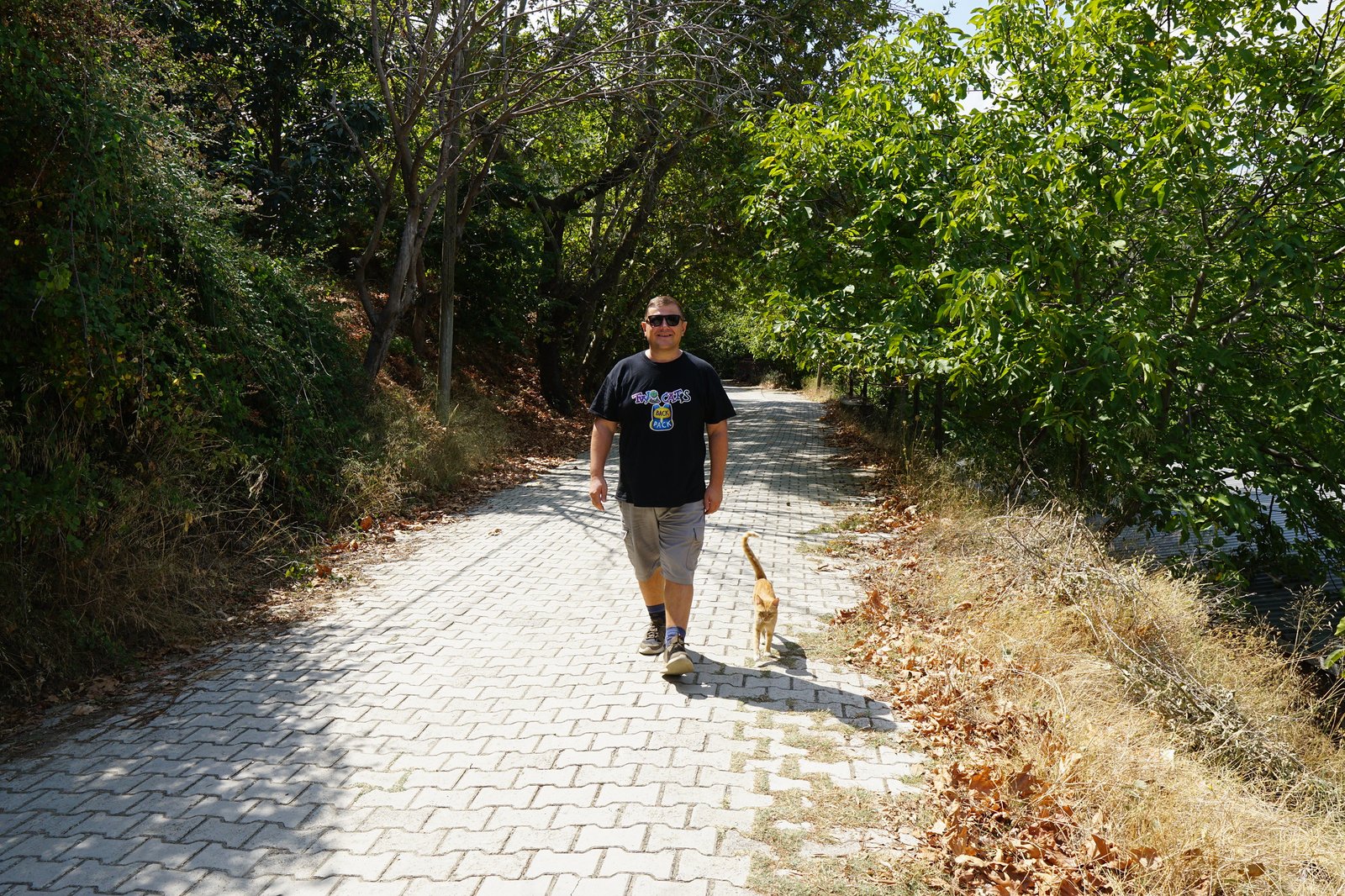
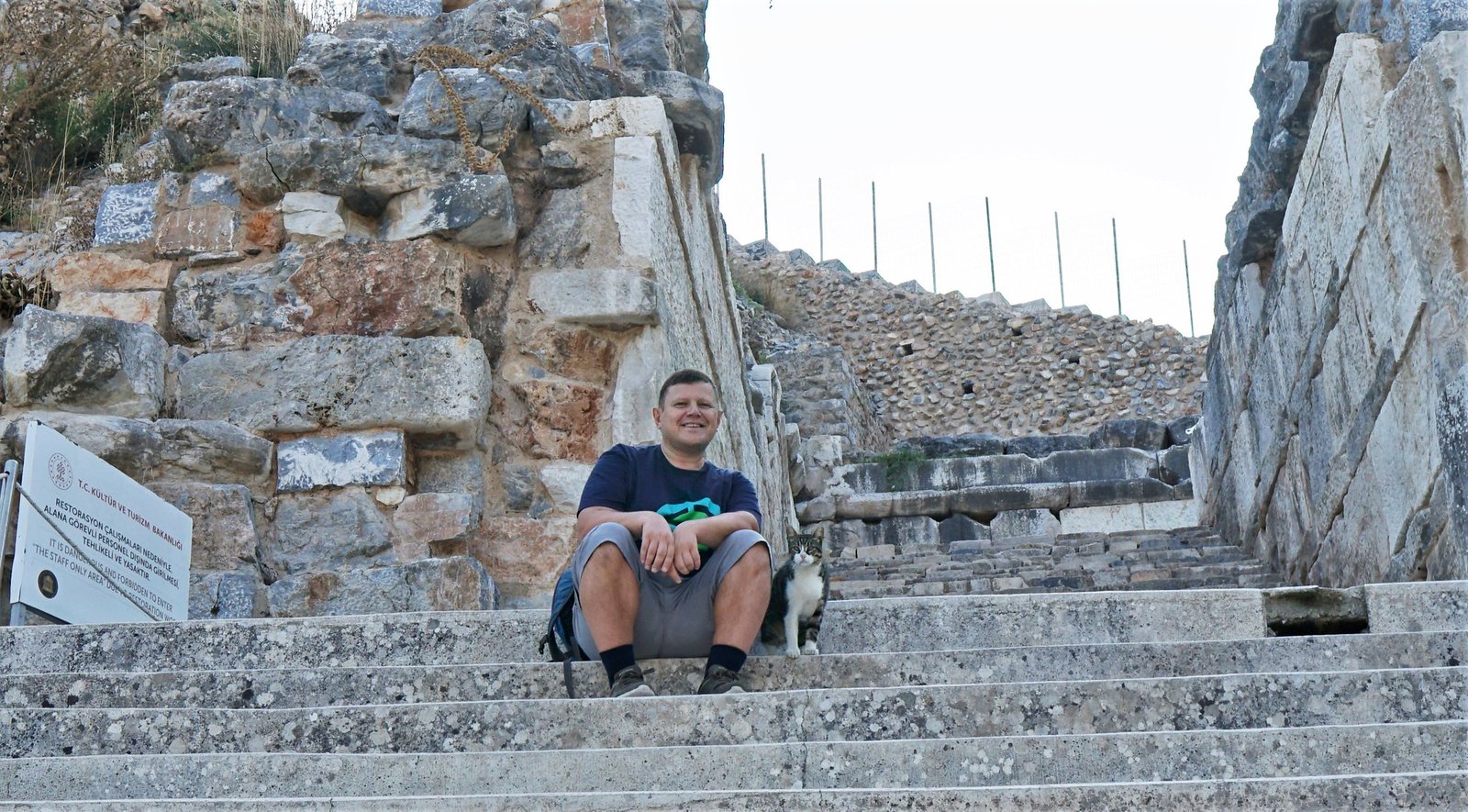
And this continued throughout our Turkish road trip. In every small town or large city, there was no shortage of cats. We noticed that some stores, restaurants, cafes, and even office buildings seemed to have their own “resident” cats. In the Ephesus Archaeological Museum, we saw a tabby cat fast asleep on top of an ancient intricately carved marble sarcophagus, completely oblivious to the crowds around him. In one of the markets, we saw a small cat house for sale, still wrapped in plastic… with a little kitten stretched out on top of it. In Bergama, we showed up early for the archaeological site of Pergamon, and the ticket booth was still closed. Surrounding the booth were around twenty cats, most sitting in “loaf” positions, all facing toward the ticketing booth door. They ignored us, intently focusing on the door.
“Is this…. A queue?” Victor joked, “Should we get in line?”
A few minutes later, a man came out with a bag of cat food and started spreading it on the ground. Only after all the cats were fed did he open the ticketing booth window and sell us two entrance tickets. We didn’t mind that cats were more important than tourists – that’s how it should be in every country and every religion.
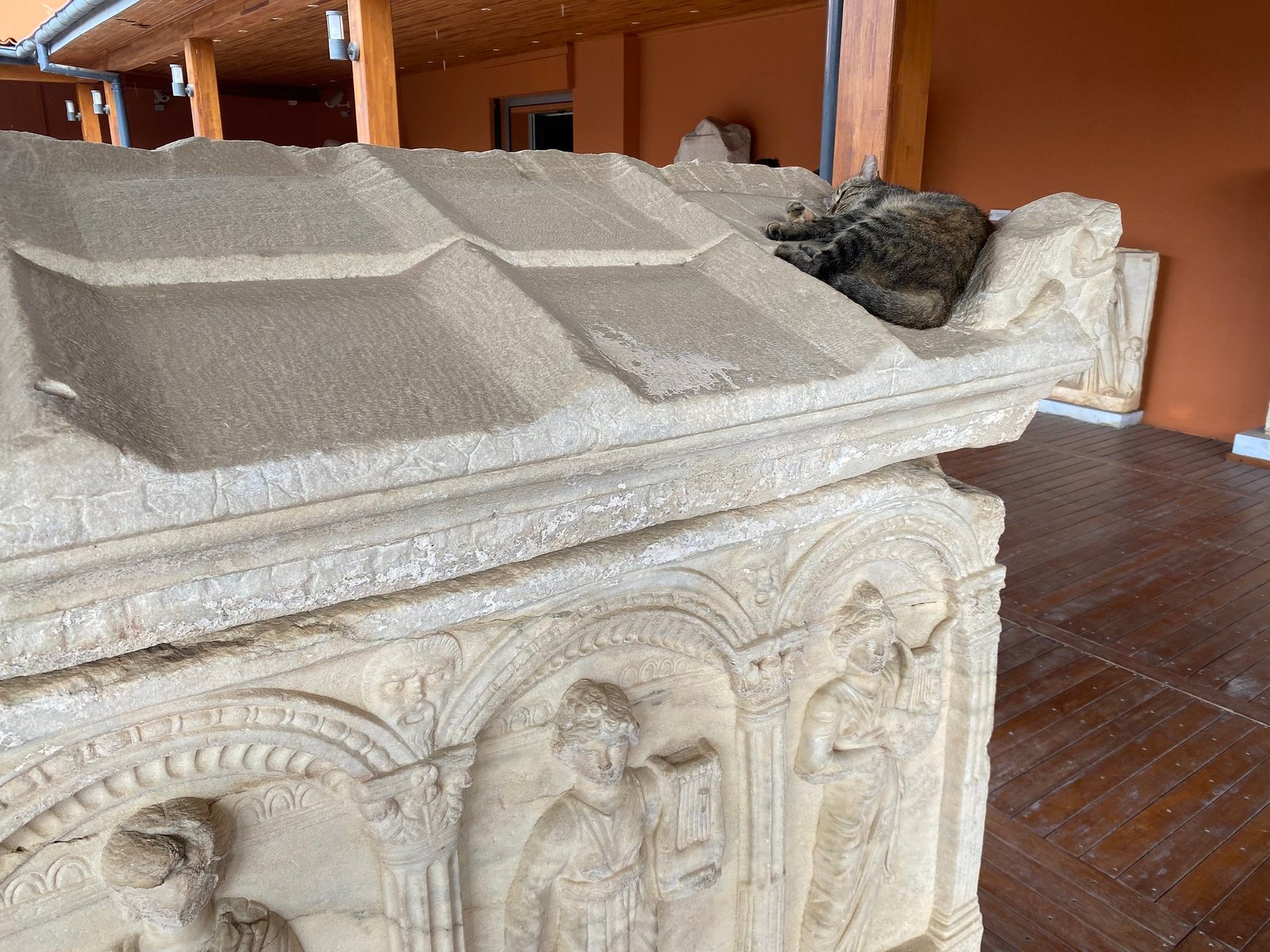
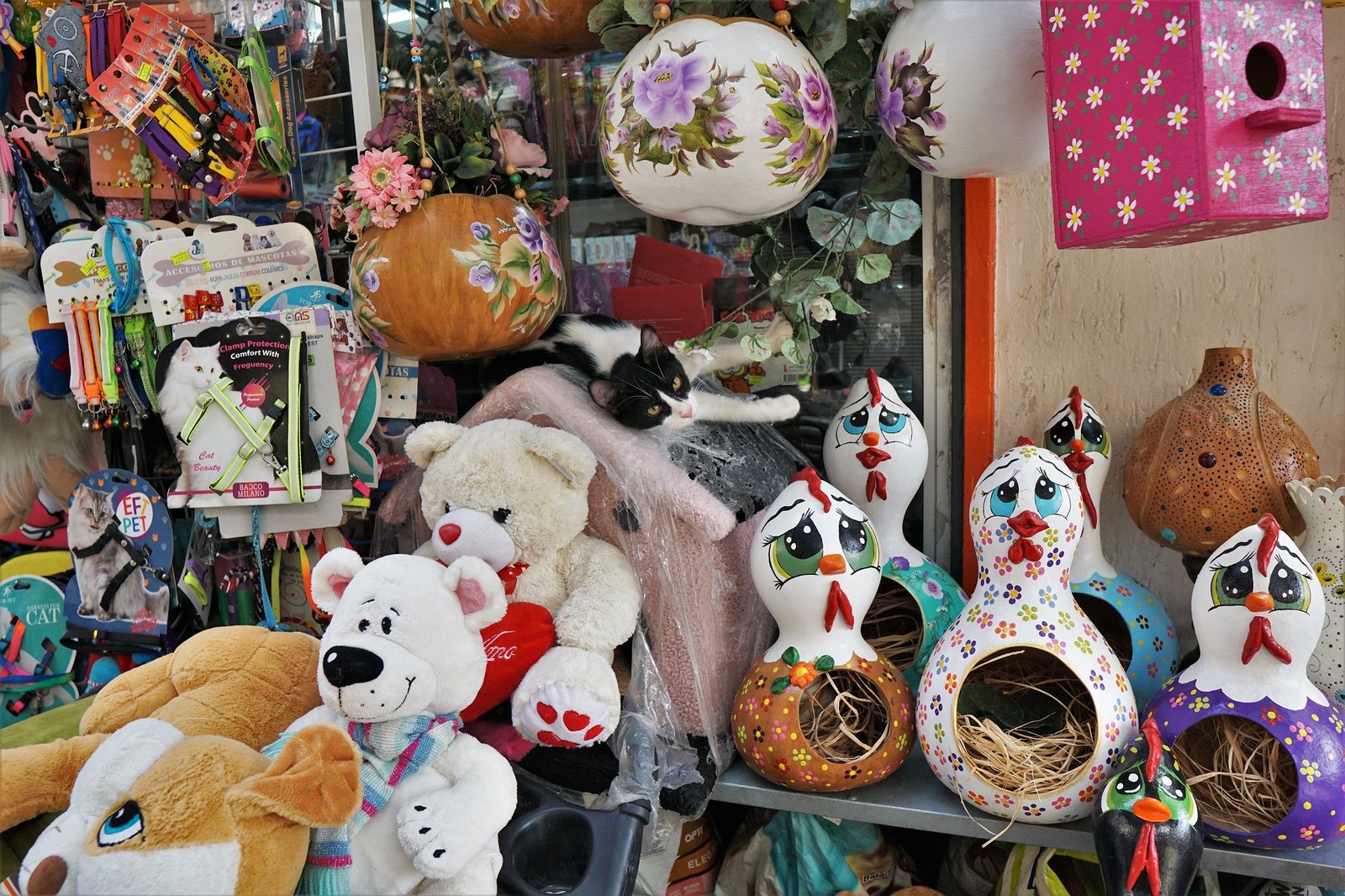
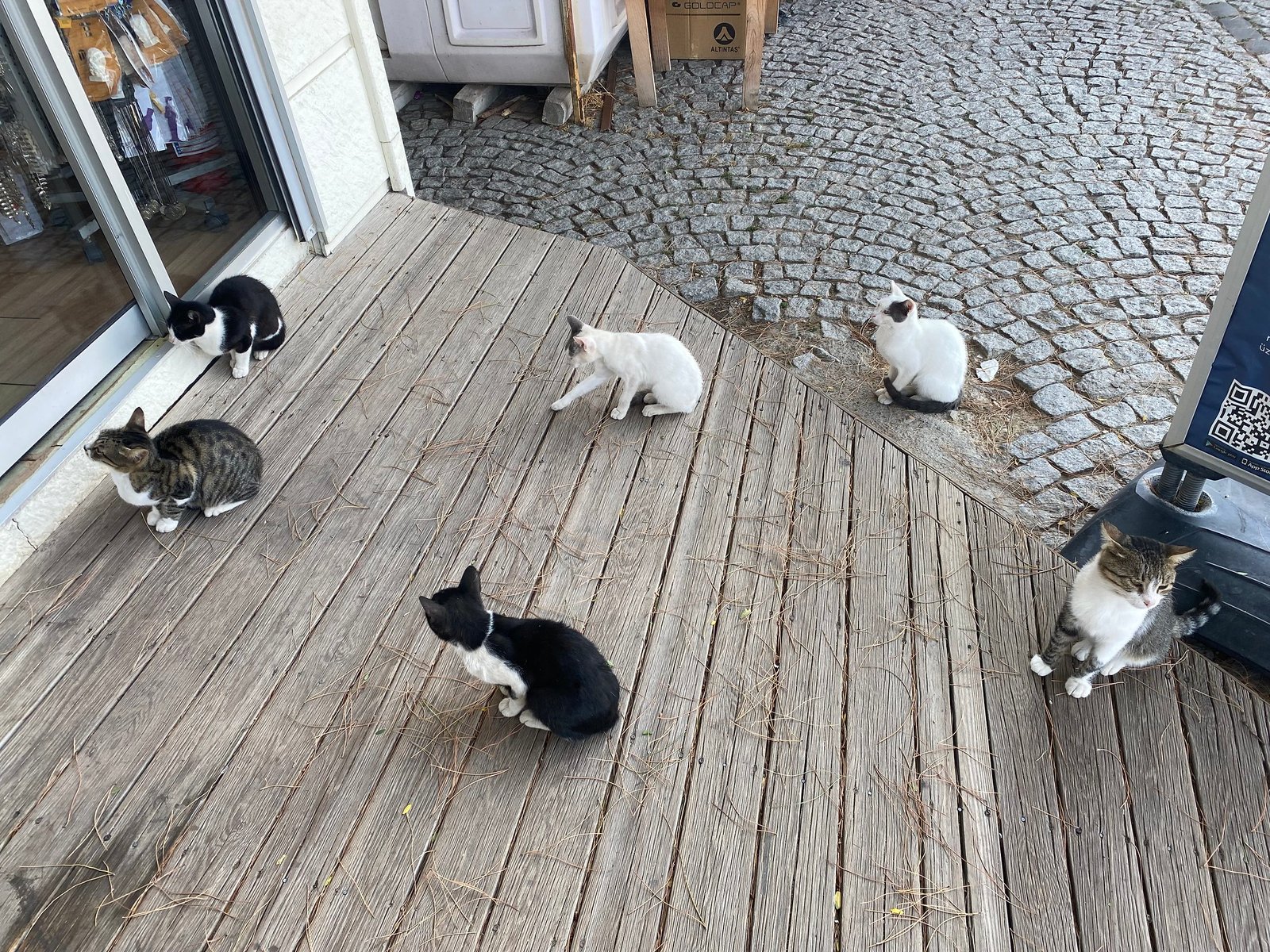
By the end of our trip, Victor and I started joking that if Milo and Lucky ever wanted to retire, Türkiye would be the perfect place for them to spend their golden years. They could lounge around outside, enjoy the milder weather, sleep on any available car hood, and be adored by locals. On the other hand, this is exactly what they do all day long anyway. Milo loves sitting in the bushes and greeting all neighbors coming and going into the building, while Lucky sunbathes on the patio and watches birds fly around. Maybe our cats will never go to Türkiye, but they certainly bring a bit of Türkiye vibe to our daily lives.


This topic reminds me of a movie I watched a while ago, named “Kedi” (which means “cat” in Turkish). If you haven’t watched it yet, I recommend.
I’ve heard of this documentary, but haven’t watched it yet. Will definitely make some time for it! Thanks!